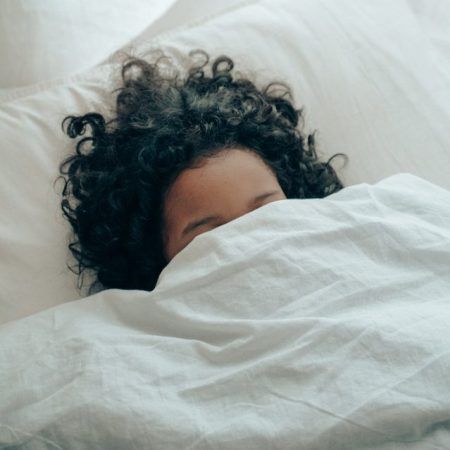Sleep disorders like insomnia have become quite common in the digital age. In fact, statistics show that up to 70 million American adults experience them. This can include symptoms like snoring, falling asleep during the day, and nodding off while driving. Meanwhile, over half of Americans have been sleeping less following COVID-19 lockdowns.
Insomnia can affect people’s lives in several ways. This includes factors like low energy and bad moods, which can affect health, work, and relationships. This can cause problems related to falling asleep and waking up, and emotional effects like anxiety and irritability.
What is insomnia and how is it diagnosed?
Sleep experts estimate that insomnia affects up to 30% of adults, whether it’s mild or severe. This sleep disorder affects people by making it difficult for them to follow a regular sleep schedule when falling asleep and waking up. This can cause various problems during waking hours like daytime fatigue.
Doctors might prescribe various treatments for this condition. This includes ones like lifestyle changes, medication, and cognitive-behavioural therapy (CBT). The prescribed treatment includes factors like whether the patient has mild or chronic insomnia; and their medical history including pre-existing conditions, and past surgeries or treatments.
Tips for treating insomnia
1. Reserve more time for sleep
Today, many people suffering from insomnia claim they don’t have enough time to sleep. Well, you can fix that problem by making time! Forget about sleep being a luxury and make it a requirement.
Here are some quick helpful tips:
- simplify your life to save time and energy by doing little things like decluttering or buying fewer things.
- lower stress levels by taking a break when needed
- take a power nap if you feel drowsy in the afternoon
- reduce your daily workload so you can sleep more.
2. Lower stress before sleeping
You can achieve this goal by learning how to choose a mattress with comfort and support, as well as various relaxation and stress-reduction techniques. Some options include:
- meditation
- yoga
- breathing techniques
- muscle relaxation
- biofeedback
- imagery.
Avoid thinking about issues that stress you. Worry and anxiety can have a snowball effect by preventing you from falling asleep. Then your situation can become worse because you start worrying about getting a good night’s sleep.
3. Avoid caffeine by late (or mid) afternoon
This is based on caffeine’s half-life being 5 to 6 hours. In short, it generally means you should ditch caffeinated drinks like black coffee, green tea, and fizzy drinks by mid or late afternoon. If you’re struggling with insomnia, it’s better to stop earlier due to caffeine sensitivity.
Caffeine can also lead to a vicious cycle. You might rely on more coffee after a lack of sleep to get you through the day. Then when it’s bedtime, all that caffeine makes it even more difficult to sleep again.
You can still get a holistic energy boost from alternatives to caffeinated beverages:
- protein
- whole grains
- water
- power walk.
4. Use sleep aids effectively
Sleep aids like travel pillows, eye masks, and earplugs can help you to fall asleep. You should be cautious about sleeping pills that contain strong chemicals.
Based on researchers’ updated info on COVID-19, about 30% of the general population has experienced stress or anxiety during the global crisis. The United States has reported over 28 million total cases as of February 2021. In comparison, Kenya has reported over 105,000 COVID-19 cases.
High doses of certain ingredients can cause daytime drowsiness. You also might sleepwalk or “sleep talk” when you use your phone or computer for talking, emailing, or texting.
There are other holistic options that don’t involve synthetic ingredients.
Another precaution is to use strong sleep aids carefully for the first time. Avoid them when you have to wake up early, drive vehicles, or make big decisions the next day.
The main function of sleep aids should be to help you fall asleep and sleep longer. If they knock you out, then you might oversleep the next day.
5. Take some melatonin
Melatonin is a human hormone that the brain produces at higher levels at nighttime to achieve sleepiness and relaxation. A melatonin supplement or medication can help to treat insomnia related to falling asleep. Some possible side effects include dizziness, fatigue, and nausea.
As always, make sure to talk to your doctor before taking new dietary supplements or medicines. He/She can check for any “drug interactions” that could cause side effects.
6. Review prescription medicines
Items in your medicine cabinet could be causing you to toss and turn at night. This includes both over-the-counter (OTC) and prescription medicines. Some examples are certain medications for treating asthma or high blood pressure. Meanwhile, some cold medicines and pain relievers include stimulants like caffeine.
Talk to your doctor about any pharmaceuticals or supplements you’re taking. They can determine if you need to reduce the dosage or swap in different medicines.
7. Limit your bedtime activities
Some sleep experts recommend limiting your bed to sleep and sex. That means ditching uses like:
- watching TV
- reading books
- listening to the radio
- making phone calls
- eating meals/snacks
- studying notes
- web browsing.
These activities can boost alertness, which is something you definitely don’t want to do at nighttime. It’s especially true of TVs, computer monitors, and mobile device screens since the tiny lights can keep you up when looking at them within a few hours before sleepy time.
Some experts even recommend avoiding these activities in your bedroom. This option is more debatable. On the other hand, if you want to beat insomnia then you should certainly limit your bed’s activities to sleep.
8. Try using CBT to sleep better
Many sleep experts argue that cognitive-behavioural therapy is one of the most effective treatments for chronic insomnia.
CBT’s goal is to change people’s schedules, habits, and thinking about sleep. This could include the daily habit of working on a laptop or tablet while in bed.
Studies show CBT alone is effective in up to three-quarters of patients to significantly improve sleep quality. CBT modules also provide more long-term effects than sleep aids.
9. Improve your sleep hygiene
This involves factors like your sleep environment and bedtime routines. Taking the right steps can improve your sleep quantity and quality. Here are some helpful tips:
- avoid caffeine 4+ hours before bedtime
- sleep in a dark, quiet, and cool room
- do light exercise 2+ hours before sleeping
- make your bedroom a work-free environment
- turn off mobile devices 1+ hours before sleeping
- go to bed and wake up at the same time
Conclusion
It’s possible to overcome insomnia, although it will take time and effort. Keep making tweaks until you start achieving some small wins. Do you dream of regularly getting a full 7 to 9 hours of sleep at night? You can achieve that goal. It starts with taking control of your life; using effective tips; and getting support from family, friends, and doctors. Just remember the old saying: health is wealth!





